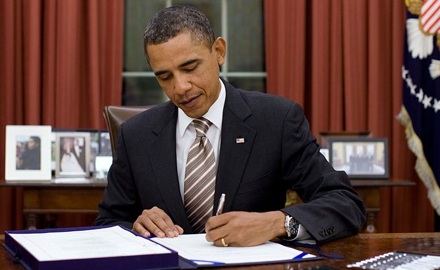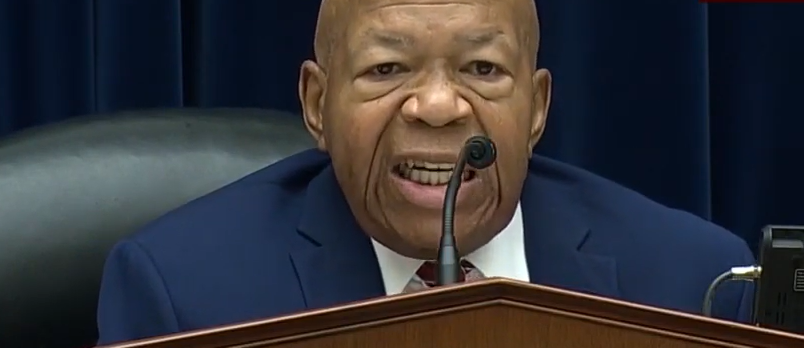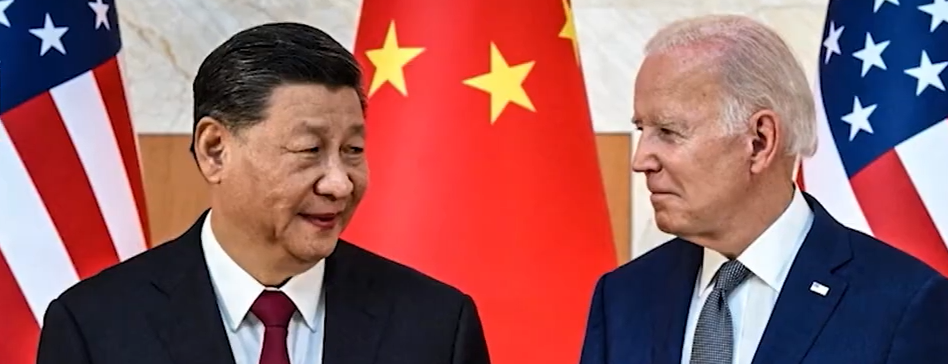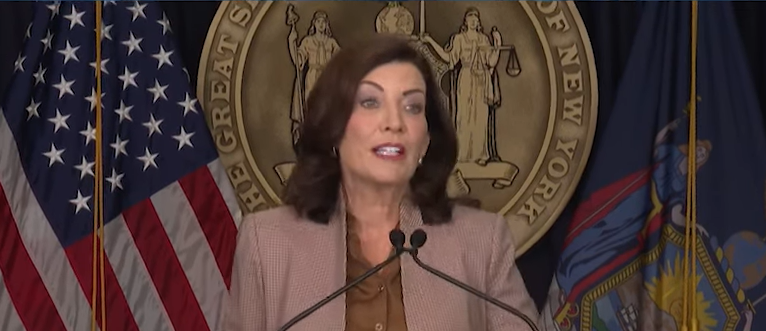President Obama should use the power of his pen immigration groups say
Many agree with our assessment that President Obama should use his existing legal authority to act on immigration, knowing that it’s good policy and the right thing to do.
But Republicans have abdicated any sense of governing responsibly on immigration and ceded control to the anti-immigrant wing of the party led by Steve King and Ted Cruz. What to do? As we’ve noted, the real radical option on immigration is doing nothing. Consequently, it’s up to President Obama to do what he can within his existing legal authority to take steps to reform the deeply dysfunctional status quo until we have a Congress that will enact immigration reform.
But some current and past champions of immigration reform legislation argue that significant executive action by President Obama will destroy chances of enacting immigration reform in the next Congress. Several recent editorials from newspapers in favor of reform make this argument, as does a new letter from once-and-no-longer champion Senator Marco Rubio (to see how far from grace Senator Rubio has fallen and what the GOP presidential primary might look like, read this Greg Sargent piece about how Rubio dissed Dreamers in order to pander to a conservative audience in South Carolina yesterday).
This “poison the well” argument misses one crucial point: the idea that Republicans, once in control of both the House and the Senate, will successfully take up and pass reform in 2015 is a pipedream.
According to Frank Sharry, Executive Director of America’s Voice: “Chances that the Republicans will enact immigration reform in the next Congress are somewhere between slim and none. Let’s review the record. Coming out of the 2012 election Republicans insisted that passing immigration reform was necessary to get right with the changing American electorate. In 2013 the Democratic-led Senate passed a bipartisan bill by a 2-1 margin. But for more than a year, the Republican-led House blocked their best chance in a generation to pass reform, put their stamp on the policy and share credit politically. To make matters worse, the Party reacted to the arrival of Central American children at our borders having fled rape and murder by reverting to nativist form. House Republicans voted to deny children a full, fair and independent hearing as well as to end DACA and prevent future executive action. Desperate Republican Senate candidates are running hard on anti-immigrant platforms, and the GOP’s likely 2016 presidential contenders are moving even further to the right of Mitt Romney. Now, we’re supposed to believe Republicans will reverse course next Congress – especially with their presidential primary season kicking off in earnest – and suddenly become pragmatic and responsible on immigration reform? Yeah, right.”
Other pro-reform voices on the right agree that legislation is unlikely next Congress. Senator John McCain (R-AZ) says, “To wait until 2015 when we’re involved in Republican primaries, obviously, would not be a viable scenario.” The Wall Street Journal recently editorialized that immigration “opponents will raise the same furor whenever it comes up, and Democrats will be less likely to compromise figuring they can use the issue to drive minority voter turnout in 2016.”
The bottom line is that immigration reform, much-needed and long overdue, will not have a serious chance of enactment in Congress until 2017 at the earliest – and, most likely, only if a wave election in 2016 produces Democratic control of the White House and both chambers of Congress. As election prognosticator Kyle Kondik recently wrote in Politico, “Of the nine Senate Republicans who represent states Obama took in 2012, seven will be on the ballot in 2016.”
And in a presidential election year, in which the voting population grows by a third and the numbers of Latino, Asian American, immigrant and youth voters swells, 2016 will present an opportunity for Democrats to try and capture the House as well.
Given Republican obstructionism, what are the choices facing President Obama in the meantime? He can either concede defeat, or he can take action. Since he has vast authority in the realm of immigration law and enforcement to take executive action, this is not a real choice. He has to do his job, even if the Republicans in the House refuse to do theirs.







